7 Things That INFJs Experience as Children
INFJ children are a rare and unusual breed. They make up less than 1% of the US population, and often report having felt “odd”, “misunderstood”, or ostracized as children. That’s why I think it’s especially important to have a grasp of what it feels like being in an INFJ child’s mind. If we can take the time to understand these children then we can improve their chances of accepting themselves and reaching their potential.
Not sure what your child’s personality type is? Take our new questionnaire here!
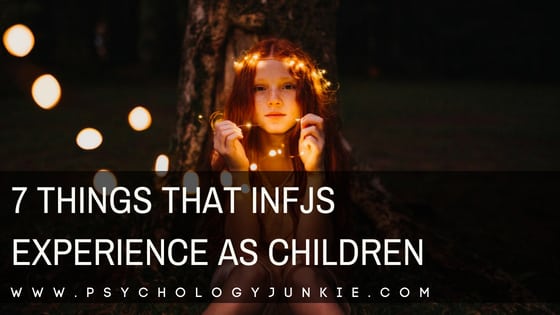
This article contains affiliate links. I only recommend products I truly believe in.
Table of contents
Estimated reading time: 9 minutes
7 Things That INFJs Experience As Children
#1 – A Hesitancy To Accept Things at Face-Value
While the rest of the world seems to step out into their environment with certainty, easily believing that they will be supported by the walls, floors, and structures around them, INFJs second-guess everything. What is an illusion and what is real? What is the meaning beyond these concrete, tangible items? They want to transcend the material world, look beyond the senses, and beyond the limits of time itself to understand the over-arching meaning of everything. While most other children are focused on what’s happening now, INFJs are trying to figure out what “now” is in relation to everything else. In fact, what does it even mean to exist in “the now”?
Childhood can be a magical time for any personality type. All children are blessed with imagination, and they are all still trying to figure out what’s real and what’s not. But INFJs tend to take longer than other types, especially sensing types, to discern what’s real and what’s not. It’s not unusual for INFJs to report that as children they wondered ceaselessly about the nature of reality and what their place was in the theater of life. What holds the earth in the sky? Why is it held there? Why was I brought into existence? INFJ children tend to take the role of “miniature philosopher” very seriously.
#2 – A Desire to Decode Dreams
While other children might be happy with the whole “dreams don’t make sense and that’s okay” line, INFJs don’t usually subscribe to that. Introverted Intuition, the preferred mental process of the INFJ, is all ABOUT unconscious symbols and imagery…that’s right, the stuff you find in dreams.
In the words of depth typologists Leona Haas and Mark Hunziker,
“Introverted Intuiting is the keeper of the so-called sixth sense. Unexplainable information can take the form of hunches, clairvoyance, abstract intuition, and messages from the unconscious.”
Also…
“Introverted intuiting is the only perception process that is independent of the conscious mind.”
– Leona Haas and Mark Hunziker, Building Blocks of Personality
Now I’m not saying INFJs are psychic, although many experience strange feelings that seem psychic. There’s nearly always a reasonable explanation for those feelings, though.
Dreams, however, are taken very seriously by young INFJs. They analyze the symbols, the images, the underlying themes, and look for messages that might be important to them. In fact, Carl Jung, the founder of personality psychology, referred to introverted intuitives as “the mystical dreamers and seers” of the world.
#3 – A Strong Understanding of Other People’s Emotions
INFJs are extremely affected by harmony, conflict, stress, or anger. They are very empathetic children and are particularly tuned into the emotional environment of their families or classrooms. One of the reasons they enjoy solitude so much is because they can separate themselves from the overwhelming emotions of other people. ]
INFJs tend to feel responsible for other people’s feelings like they have to “fix it” if things are bad. This is thanks in part to their auxiliary function, Extraverted Feeling. At a young age, this function isn’t very well-developed yet, so it feels overwhelming and stressful for young INFJs to tap into frequently.
Psychologist David Keirsey says of INFJs,
“This type of Idealist has strong empathic abilities and can become aware of another’s emotions or intentions – good or evil – even before that person is conscious of them. Such mind-reading can take the form of feeling the hidden distress or illnesses of others to an extent which is difficult for other types to comprehend.”
– David Keirsey, Please Understand Me
Young INFJs are so conscious of how other people are feeling that they can have difficulty understanding how they themselves feel. At times, this empathy can be a gift. They may know just what’s bothering someone and what to say to encourage them. Other times it can be a curse, and they can feel overwhelmed by emotions they don’t understand because they aren’t their own.
This is one of the reasons it’s very important for parents of INFJs to give them plenty of alone time and to keep the environment as conflict-free as possible.
#4 – Distraction
INFJs are drawn to complexity on a constant basis. Remember how I said they don’t take anything at face value? Well, that certainly applies to their interactions with people. INFJs analyze what people are saying to them, always looking for hidden intentions, meanings, symbols, and significance. And if they’re on their own they can get so lost in their imagination that the outer world becomes silent to them.
This can mean that one of two things happen when you’re talking to them:
1 – The young INFJ is so focused on analyzing what you said in the first two minutes of the conversation that they lost track of what you’re currently talking about.
2 – If they are playing on their own, they can be so lost in their imagination and ideas that they didn’t realize you said something to them or gave them a direction. This adds up to them being very confused fifteen minutes later when you said, “but I TOLD you to come in for dinner!”
#5 – Intense Frustration Over Interruptions
INFJs have a difficult time switching gears in childhood and adulthood. They like to fully immerse themselves in what they’re doing. They frequently get into a meditative, calm, focused state when they are analyzing, creating, or imagining. It’s as if the rest of the world goes quiet and everything seems peaceful yet alive. When someone bursts in on them during these times, they can seem annoyed, irritated, or overwhelmed. They may cast off their normally kind-hearted disposition and seem surprisingly harsh or sarcastic. That’s because when they’re in these states they are usually tapped into their dominant function, Introverted Intuition, NOT their feeling function, which comes second.
Basically, it takes them a while to revert back to the “I’m around people, so I better tap into their feelings and their needs” phase.
#6 – Perfectionism
If you see a young INFJ repeatedly balling up the story they are writing, tossing it in the trash, and scowling furiously, then you might have caught a glimpse of INFJ perfectionism. Young INFJs have extremely idealistic hopes for the projects they create. Bringing their ideas out into the world is often stressful and time-consuming for them. They feel that the real thing “must” live up to their idealized image. It doesn’t help that they tend to have complicated, substantive projects in mind and not simple ones. They can re-work, throw away, modify, adjust, and correct their project so many times that they end up in a state of exhaustion.
If you’re the parent of an INFJ, it’s important to give them some space when they’re working creatively. If they’re not happy with what they’re doing, continue to give them space, even if you feel like you must step in. INFJs tend to be very sensitive about their work and won’t want feedback until they are ready to ask for it. And they will ask when they are ready most of the time. When they do ask for feedback, try to be as positive as possible and give specific compliments, not generalized ones. If they want suggestions, be sure to mix criticism with praise for what they are doing well.
Related: The INFJ Workaholic
#7 – Loneliness
Young INFJs soon discover that most of the world doesn’t operate in the same way that they do. Not every other child wonders about the nature of reality, why they exist, what this symbol means for that future, or what will happen in 50-100 years. Not everyone gets these sudden “hunches” about what will happen that they can’t explain because it hasn’t sorted itself out yet. INFJ visions, so clear inside their mind, often come across as halting or rambling in person. They may feel they know something very strongly and feel as if they must tell someone about it, but then be met with ridicule, skepticism, or mocking when they finally do.
Almost every INFJ I’ve spoken with has at one point in their lives come to a realization that their way of seeing the world isn’t generally accepted or understood. They often come to a point where they learn to keep things inside and they begin to question everything that comes naturally to them. It is extremely rare for young INFJs to find a like-minded individual who understands them, shares their feelings, and trusts their insights. You can find out more about INFJ loneliness here.
It’s important for parents of young INFJs to take them seriously, to answer their questions, to not belittle their process or “rush them along” when they’re trying to explain an insight. With encouragement and open-minded acceptance, INFJs can be catalysts for positive change in the world.
What Are Your Thoughts?
What have your experiences been as a child? Do you have any thoughts to add? Let us know in the comments!
Want to Book a One-on-One Type Consultation with Me?

Not sure of your personality type? I can help you! As the founder of Psychology Junkie and an MBTI® practitioner I’ve spent over seven years helping people discover their true personality type. Use the scheduler below to book a session with me!
Want to Find Out More About the INFJ?
Check out my eBook, The INFJ – Understanding the Mystic.
Want to Discover Your Child’s Personality Type?
Check out my eCourse, Parenting by Personality Basics.
Other Articles You’ll Love:
7 Reasons Why You Need an INFJ Friend in Your Life
10 Ways INFJs Can Boost Their Creativity
3 Weird and Wonderful Secrets About the INFJ
10 Things You’ll Relate to If You’re an INFJ
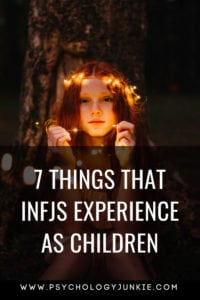
Subscribe to Our Newsletter

Want to discover more about personality type? Get the inside scoop with Susan Storm on all things typological, along with special subscriber freebies, and discounts on new eBooks and courses! Join our newsletter today!


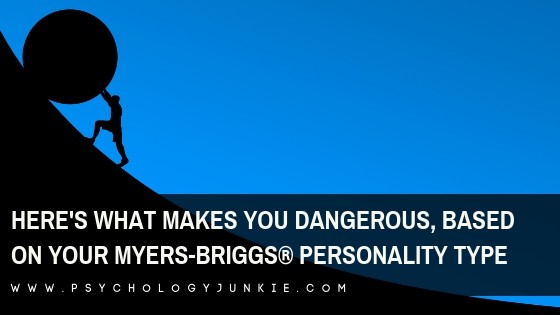

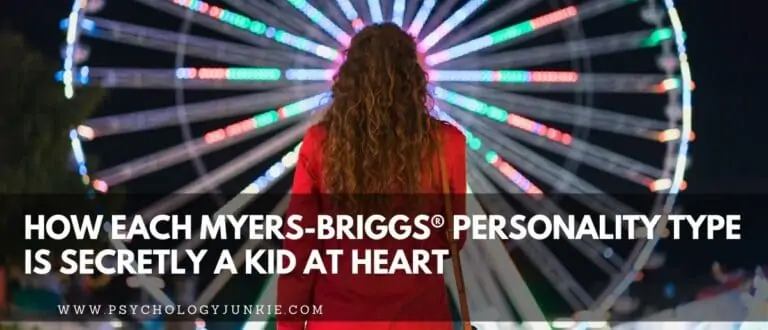
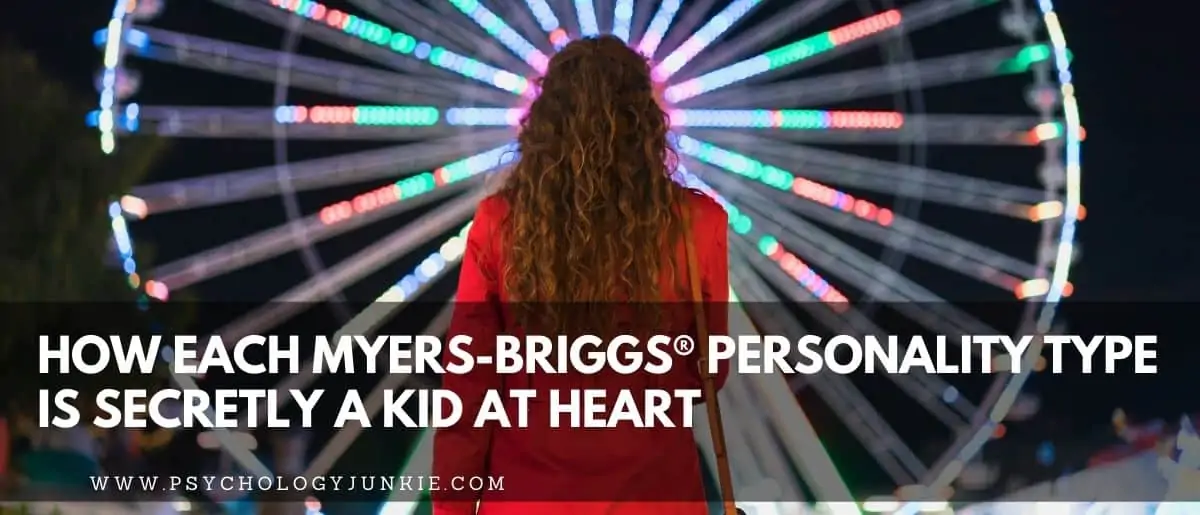



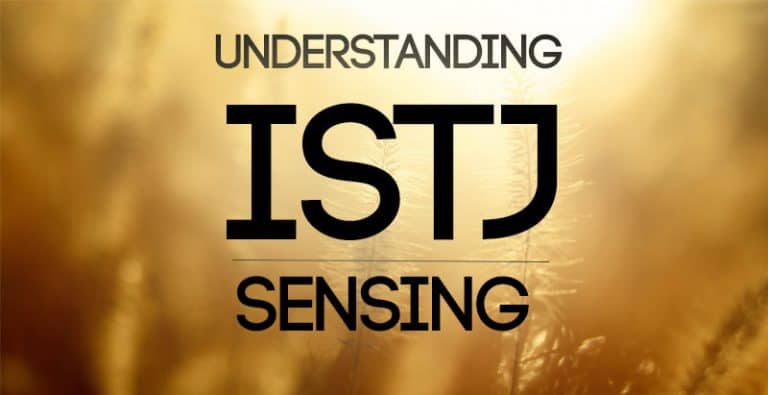
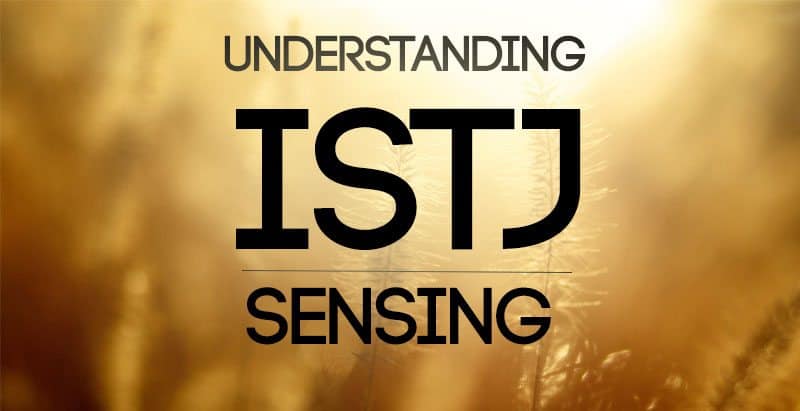
I am 23 years old and the first time I heard of the MBTI was when I was 18 and even then I was typed as INFJ. After which made a whole lot of sense after looking more into it. As far as I know, this was extremely accurate to how I was when I was a kid. I was, and still am, a big dreamer and a super imaginative person. My parents had just accepted that and they encouraged me to think what I wanted and dream what I wanted to dream growing up. Heck even the dreaming part was crazy accurate! I cannot tell you how many times I’ve dreamt of something that seemed really important to my life in some way and I was right. Also even now when I get lost in my thoughts, it takes someone a good minute of talking to me for me to realize they’re ACTUALLY talking to me lol.
I am only 14 and I can so relate to this, my parents don’t know I’m an infj though so its a bit hard seeming their extroverts!
I’m 21 and I think I know exactly how you’re feeling right now, and if I could go back and talk to my 14 year old self there is so much that I would say. The next couple years will be hard. Try not to put so much pressure on yourself or worry too much about making friends and fitting into groups. Do what you love and people who share your interests will naturally attract to you. Don’t worry too much about what others think and don’t get obsessed with planning for the future. Try to live in the now, try new things, learn about mindfulness and meditation, take time to be by yourself. When you start having romantic relationships be careful. Set boundaries and stick to them. PLEASE don’t try to fix people..especially not boyfriends. You cannot fix anyone who doesn’t want to change. You also need to be a bit wary with who you trust– because while your energy will attract people who you will connect with; empathetic and selfless types (females especially) also attract toxic people and narcissists. Be sure to pay attention to red flags and warning signs (being pushy, asking for things, telling you how to feel, jealousy, aggressiveness, etc.). Just be aware, and remember that you CANNOT change those kinds of people nor is it your responsibility to, as long as you intend to do them no harm you’ve done all you can. Failed relationships or friendships do not mean you’ve done anything wrong. There’s nothing wrong with failing–it’s the only way you learn. Pursue things that you’re passionate about, and follow through on things that you try. You’ll come up with all kinds of great ideas and you’ll be scared to follow through for fear of rejection, fear of failure, fear of change, fear of success, etc.–remember this is just because you feel like you don’t fit into the world. You do, you’re just wired differently than the people around you, you see things differently, most importantly you feel things differently. Embrace this!! If you don’t second guess yourself others won’t either (at least not the ones that matter). You have such a unique perception and it’s your choice if you let it isolate you or if you let embrace it and share it with the world. I know you love your alone time but it’s worth it to make the effort and make some real meaningful relationships (family and some close friends), but also don’t forget that there are benefits to having friends that you aren’t super close with–I always hated these kinds of friends–but they help you set your boundaries and help you enjoy casual socialization which can be hard for us INFJs. Take good care of yourself, don’t forget: “SELF CARE IS NOT SELFISH, IT IS NECESSARY,” and be careful with your heart.
Best of luck to you!!!
Its good to know that there’s a reason I’m so different, but sometimes it feels more like a condition than a personality type.
????
Yes I totally agree. My parents had me see counselors and other people I can only vaguely remember because I was so young to “figure out what was wrong with me.” They thought I was autistic and finding that out later in life hurts in some way. Like they couldn’t just accept me for who I was.
LONELINESS doesn’t NOT come from being ALONE, BUT from being SURROUNDED by people who will NEVER UNDERSTAND me.
A feeling of ISOLATION occurs when even the person standing right next to you is UNREACHABLE!
I know how you feel. Others not only disagree with your assessment of a situation, they can’t even see it the way that you do and worse still, they don’t care. You are not alone
This is really spot on! I can relate to every single topic. Especially the loneliness, being considered as “odd” and retrieving into imaginary worlds was true for me as a child. I for example created parallel realities in my mind, integrated them into my everyday life and everyone I knew played a secret, imaginary role. That way my whole life became a play – with me being the single audience.
In teenage years it was a painful experience to learn that my insights on group dynamics or people in general were almost never welcome. Back then, I didn’t understand that it’s not “normal” to look through people and to know what’s going on for them (sometimes even better than they do themselves). In my desire to help, I reached out and in several cases I got rejected in the most brutal way. I was called a liar and an agitator and finally excluded from a whole group of high school friends, only for speaking up and telling the truth.
Growing up with a narcissistic parent made things worse. I ended up doubting my own perceptions, suppressing my intuitive and insightful nature, only using it for detecting tensions and to prevent conflict. I became the mediator of my family, playing peace-keeper and trying to create harmony by making each family member understand the others’ perspectives, often dismissing my own feelings and needs. I felt responsible at a very high level, which is a lot of pressure for a teenager.
It was not until my late twenties that I discovered how valuable and special my gift is and learned to embrace them with all that comes with it. Recently discovering MBTI at the age of thirty helped a great deal with that.
Reading the other comments, I felt touched and I can relate to almost all of them. You can see a lot of pain in every single experience and it is not easy to face the world as an INFJ – especially when growing up. However, I wouldn’t want to have it any other way. I love being an INFJ and I’m thankful for every single experience in my life, because each of them taught me a valuable lesson and shaped the person I am today.
I hope your article helps parents with an INFJ-child to give them the support they need in this challenging world. They will get deeply hurt, they will feel out of place and they will experience what it means to be different and sometimes wish, they could be more “normal”. I guess, that’s something an INFJ has to live with, but they will also learn to live through the pain and come out stronger and wiser in the end. 🙂
(I’m sorry for any language mistakes, not a native speaker….)
I being an Infj can relate to everyone’s post I am in my fifties.Looking back in my child hood. It wasn’t till my pre teens that older adults found me fascinating.My Mother always dismissed me as over imaginative..At times in my life people made me feel less than.Yet all my life I have been a magnet for children. Old people and animals. Nothing has changed. I always gave of myself freely, with love. Yet so much in my life I never received that.But it is okay,because I understand the world we live in.I may or may not be alot of things in this life, but I will never stop shining my light, I will continue to be Authentic, because that is who I am..Thank you for these posts, they are most helpful.And thank you to the Infjs who shared themselves, graciously here…
I hope to bounce out of it soon. Sometimes it’s hard to make people understand what you’re going through inside.
My childhood, hmm..it’s not happy cheerful thing. I feel like I can’t blend in with kids around me, idk why. I’m shy and quiet, and I feel like I’m outside of the frame, when I was in class or in a group of kids. The more I want to make friends with them, the more I became nervous, the more I think hard how to make friends, the more I feel like burden so in the end idk what to do. And when they said meanie things to me, it makes me down and blame myself. Lol. And at same time, hating them, but I could not express it. And lol yeah when I was kid I asked myself, why am I alive? What will be my fate 20 years later? Why human do meanie things to others? Could I go to find aliens world that fit me? ????. I wish I found about mbti since I was younger..I’m 31 and just found bout it 2 years ago. I only took online test tho, and reading articles bout mbti especially infj, it feels like I found a way how to organized the puzzles in my mind. It helps me to know myself more, and realize that I’m not alone ????
What does INFJ I have read the information and the posts and can relate to do much. Angel ????Blessings
This definitely resonates with me. I had so many adults admonish me to “come out of my shell” and throughout school I was monitored for my apparent lack of social skills. I also definitely noticed early on that I could tell when someone didnt like me and also that people REALLY dont like when you can easily read people.
But as an adult in my late 30s I can honestly say its gotten better. I have people in my life who care enough to listen, to give me space, and to love me for who I am. As MBTI becomes more and more mainstream, I find I’m given language to use to describe myself that others can actually understand.